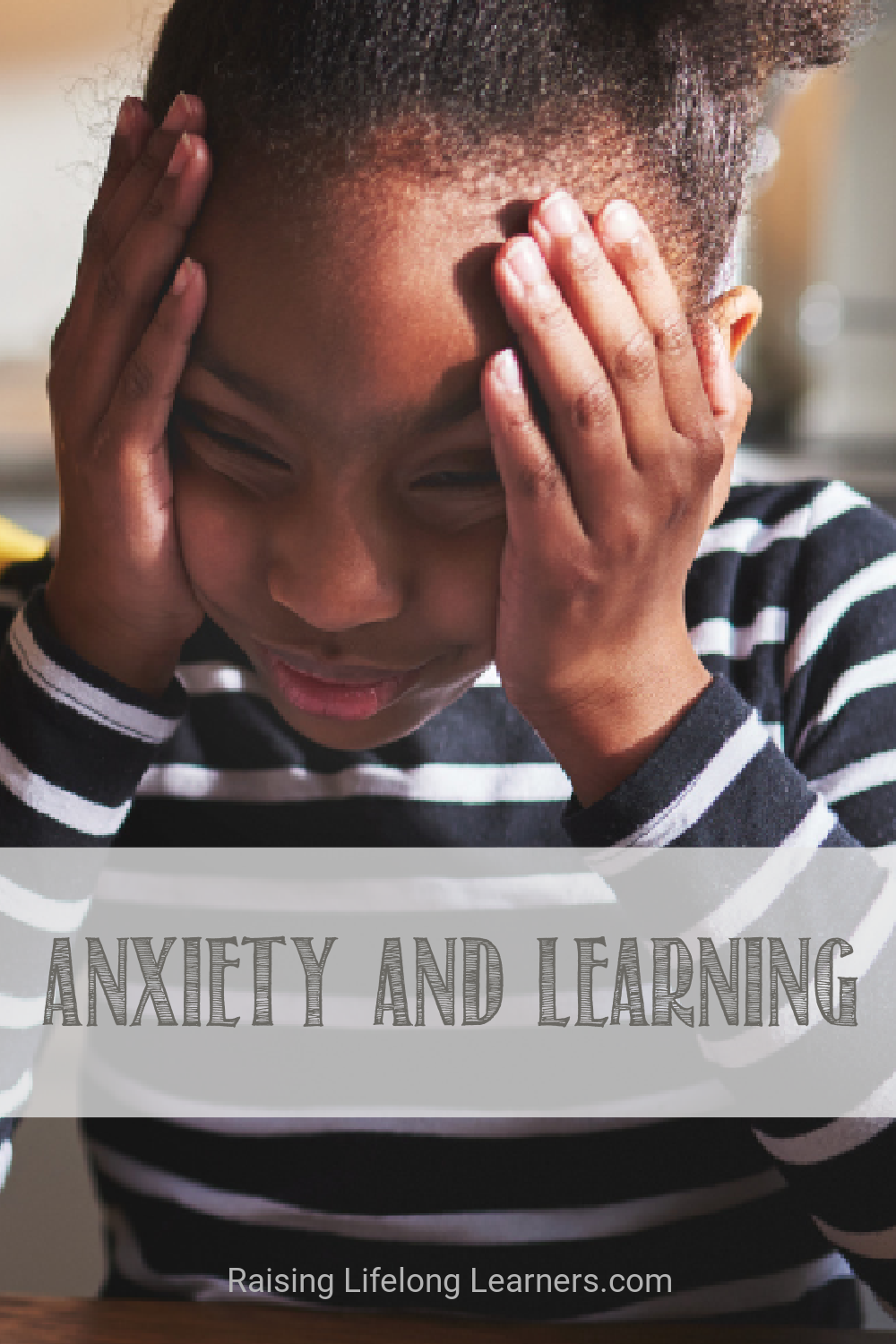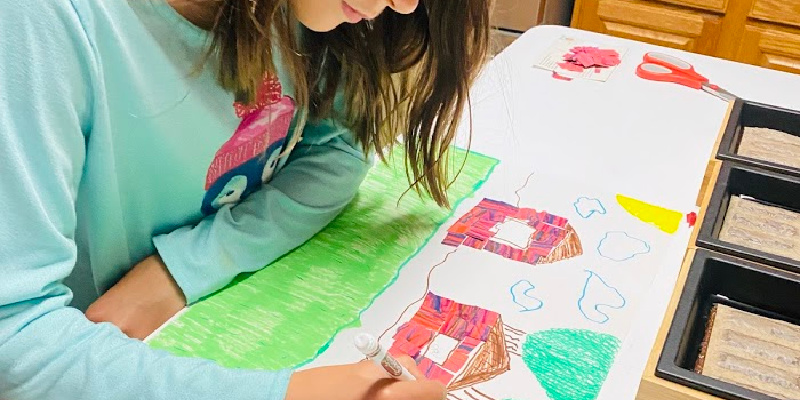Anxiety and Learning: What You Need To Know
This continues our series, all about anxiety and atypical children. Today, we are talking specifically about the impact of anxiety on learning.

Anxious kids are anxious kids all aspects of their lives, including learning.
When it comes to work, homeschool, traditional school, private school, and anxiety, it can be hard to determine what we are actually dealing with. Are we dealing with the anxiety? Are we dealing with school and all of the expectations? Or, is it the internal pressure that our kids put on themselves?
The answer truly is yes, it could be all of those things. An anxious kid is an anxious kid and that anxiety permeates every part of their lives. It goes through and touches everything. This means it’s not easy to separate the stress, anxiety, and perfectionism from the situation.
Specifically, when it comes to learning, we are going to focus less on what’s causing the anxiety and focus instead on how we can address it in educational settings.
Anxiety, Learning, And Atypical Kids
Many of us are homeschooling our kids because school doesn’t work for their particular kids’ brains and how they’re wired. If your kid’s brains are wired in a way that doesn’t work for a typical school setting because of anxiety, they’re also going to feel worried and anxious at home.
In homeschooling, we believe that we have the best opportunity and resources to give our kids an educational experience that is more nurturing and loving.
My little teeny tiny nine-year-old boy who lacks coordination skills, is probably not going to be an NBA all star, but he can still play basketball and enjoy the sport for its own sake. We want to keep our kids’ dreams realistic, but we also want to make sure our kids know that they can be who they want to be and embrace the quirks of their own brain and the neurological wiring. It’s so important for us to tap into those brilliant, beautiful gifts of our sensitive children and help them use them for good. This is where we begin as homeschool moms and dads of anxious kids.
Helping Our Anxious Kids
How do we help our anxious kids when anxiety is affecting their learning?
For example, you might not have a formal lesson for them to sit down to. But when you say it’s time for school, or I need you to get your math done, or we’re going to work on a project today and start a new unit study, they might feel a little bit uncomfortable. They might lack concentration. They might seem distracted. And because of that lack of concentration and distraction, anxiety then starts to affect their working memory (their ability to hold information in their minds for short periods of time).
If they can’t remember the passage that they just read, the audio book they’ve been listening to, or the lesson they just saw in their math program, how are they going to be able to respond to it? How are they going to be able to tell you what a character’s motivation might be? How are they going to finish the journal entry or complete the math exercises?
Short-term memory can be affected because a lack of concentration or worry associated with the potential of not doing well. This can get in their way of actually understanding and retaining the information.
Anxiety also makes thought processing less efficient if they’re distracted by being anxious. They start to fall behind as they complete a task and this often keeps them from asking questions or asking for help if they need it. Anxiety can stop the forward movement. It then becomes this vicious cycle because they fall behind and they’re worried about their performance, but then they don’t do anything because they’re avoiding their work.
I want you to remember that, an anxiety disorder is not going to go away. Your child will be dealing with anxiety in some form or another all their life. It’s not a life sentence in its present form. It can come and go with varying intensity. Our kids are going to struggle off and on throughout their lives. We want to help them early and often. We want to give our kids tools and strategies that they need to deal with their anxiety and stress. Next week, we are going to spend the entire episode talking about all sorts of different examples and anecdotes from parents like you, who have kids with anxiety and things that have worked for them.
Today, I share my own best tips and resources for helping your child. This episode includes things you can begin today, to help your anxious child.
Talking To Our Children About Their Anxiety
This set of dynamic worksheets will help you work with your child, as they learn more about themselves, their stressors, and the symptoms of anxiety.
Raising Lifelong Learners Podcast #160: Anxiety and Learning
This episode continues our series, all about managing anxiety in gifted and twice exceptional children. Today, Colleen discusses the reality of learning when a child is anxious and how we can help.
Links And Resources From Today’s Show:
- SPONSOR: CTCMath
- Anxiety vs. Stress vs. Perfectionism: Helping Our Children Cope
- Anxiety In Children: Physical, Emotional, and Behavioral Symptoms
- Great Gifts for Children with Anxiety
- RLL #55: Helping Your Child Manage Perfectionism
- RLL #52: Overcoming Perfectionism and Finding Joy in Homeschooling
- The Best Advice I Can Give You: Become A Student Of Your Child
- The Anxious Parent of the Anxious Child | Your Anxiety is Not Identical
- RLL #86: All About Anxiety with Dr. Dan Peters
- Anxiety Toolkit Resources
Leave a Rating or Review
Doing so helps me get the word out about the podcast. iTunes bases their search results on positive ratings, so it really does help — and it’s easy!
-
- Click THIS link to go to the podcast main page.
- Click on View in iTunes under the podcast cover artwork.
- Once your iTunes has launched and you are on the podcast page, click on Ratings and Review under the podcast name. There you can leave either or both! Thanks so much.
Want to record your own question, comment, or have your kids tell us what they LOVE to learn about? Click below and start recording!















